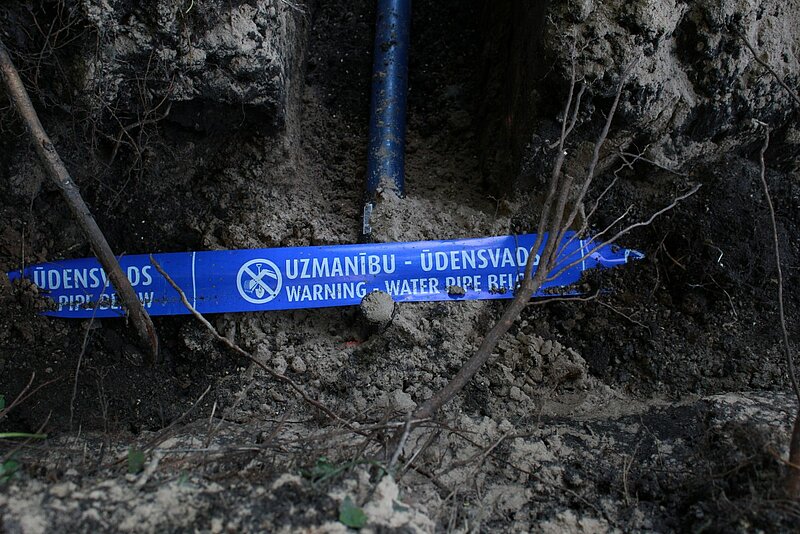
Environmental educator Greg Traymar (USA) visited the University of Latvia this year from 9 to 15 May participating in a large array of activities. The visit was made possible thanks to SIA Armgate (the donation is being administered by the UL Foundation) and BAFF (Baltic-American Freedom Foundation).
Review of the visit from Greg Traymar’s point of view
What were the main goals of the visit? Were they achieved?
The main goal of the visit was to offer environmental educators to learn about the “Sharing Nature” learning approach created by Joseph Cornell. This nature-sharing approach is used around the world, and it is being spread by 'multipliers', who have mastered the methods we offer and want to continue sharing them with others. But the main purpose of this visit was to create an inspiring and lasting connection between a human and nature for the course participants. Judging from the joy on people's faces and the feedback, I felt that these goals had been achieved.
What do you think the purpose of environmental education should be? How should the learning approach be changed in order to achieve this?
I think that environmental education should offer people an experience that not only touches the intellect, but also goes deep into the heart. When we make sure that the beauty of nature deeply touches people, this bond remains for life. The deeply perceived beauty of nature influences our actions, we want to take care of it. Those involved in environmental education are likely to do so because of the inspiring experiences they have had at some point in their lives. If we can combine learning and joy, we will probably remember the information because of the way it makes us feel. We need to bring a lot more play, fun and joy into the learning process.
You have gathered an incredible amount of course experience. You have done it in more than 15 countries around the world. How would you describe the participants of the Latvian education courses and their work experience?
I’ve found that the people I met were very sincere, open and purposeful. It was wonderful to see how serious they were, but also happy. I was amazed at how much they wanted to find ways to communicate creatively with their students. Joseph Cornell, before I arrived in Latvia, said: "I feel that you will really like Latvian people." He was right! It seemed to me that they were my family.
Each international event creates new links between peoples and cultures. Experience is gained that enriches us. How can this be applied to this event?
At "Sharing Nature", we have discovered that such a visit, as it has just been in Latvia, creates a spark that soon begins to spread a new perspective on environmental education not only in the country, but also beyond it. Once, when one of our educators was teaching in Germany, one of the participants said, "I haven’t been very good-natured about Americans before, but you're the best representative of your country." When we can meet each other without intermediaries, we begin to break down our prejudices. When we can meet thanks to nature as something universal, we begin to see how we are all alike.
What your special impressions when visiting the University of Latvia?
I was so inspired to see how green and innovative the campus is and how friendly all the staff are. During the tour of the Nature House, I kept thinking, "Yes, if I were a student again, I'd like to go here!" I was truly surprised by the kindness of the staff of the University of Latvia, which I felt from everyone I had the honour to meet. Every time when I come to a new country, I'm a little worried, but people's smiles and open hearts made me feel at home. Jāzeps Logins, thanks to his openness and kindness, was an ideal representative of the university.
About the University of Latvia Foundation
Since 2004, the University of Latvia Foundation has been providing an opportunity for patrons and cooperation partners to support both the University of Latvia and other leading Latvian universities, thus investing in the future of Latvia. The priorities of the UL Foundation are to support the most outstanding students and researchers, to promote the creation of a modern study environment and to build and renovate university buildings.
About the University of Latvia
The University of Latvia has consistently been the leading and most influential national higher education institution in Latvia. It is the largest interdisciplinary university in Latvia, which has an important place not only in the development of the entire education system, but also in the overall growth of the country's economy. Currently, the UL Academic Centre is being developed in Torņakalns, which will become one of the most modern student and research centres in Northern Europe. Currently, the House of Nature and the House of Science have opened their doors, and soon they will be joined by the House of Letters.
About the Faculty of Chemistry
The Faculty of Chemistry (ĶF) of the University of Latvia (UL) is a centre for academic and professional education in chemistry, where students study to become professional chemists and occupational safety specialists.

 Academic Centre
Academic Centre






